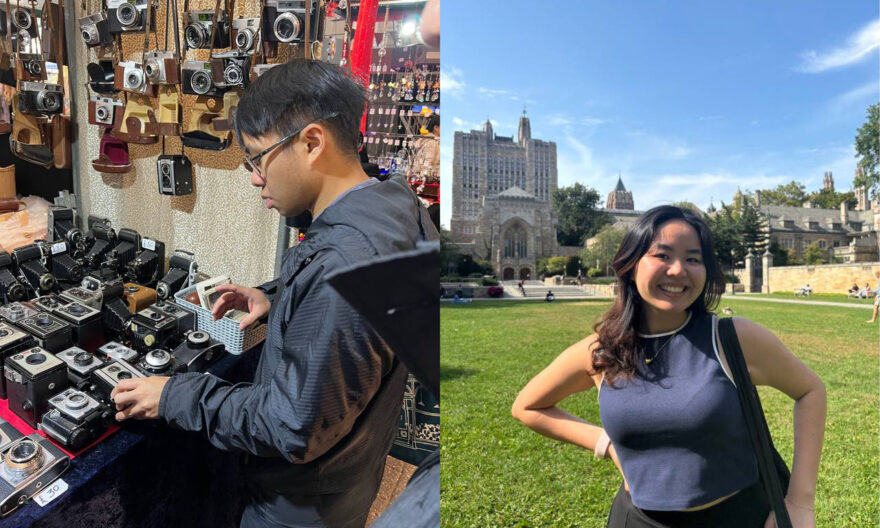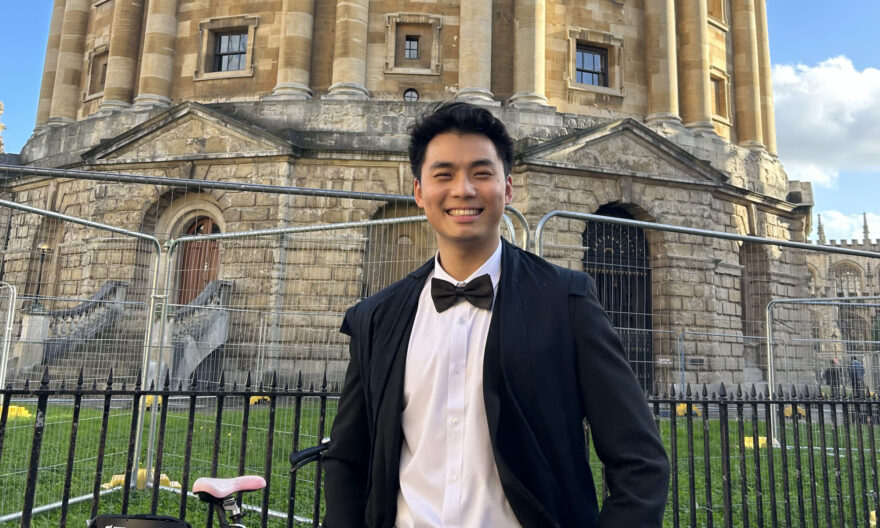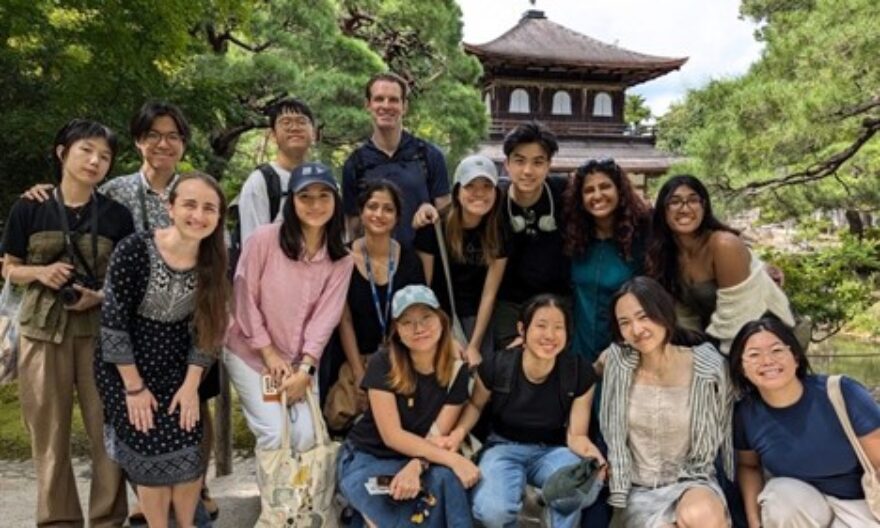Global perspectives from a semester abroad
Yale-NUS students reflect on their study abroad experiences
For Yale-NUS students, an integral part of their Yale-NUS experience is the opportunity to learn across different regions and cultures. Last semester, many students embarked on study abroad programmes around the world, in different continents such as North America, Europe, and Asia.
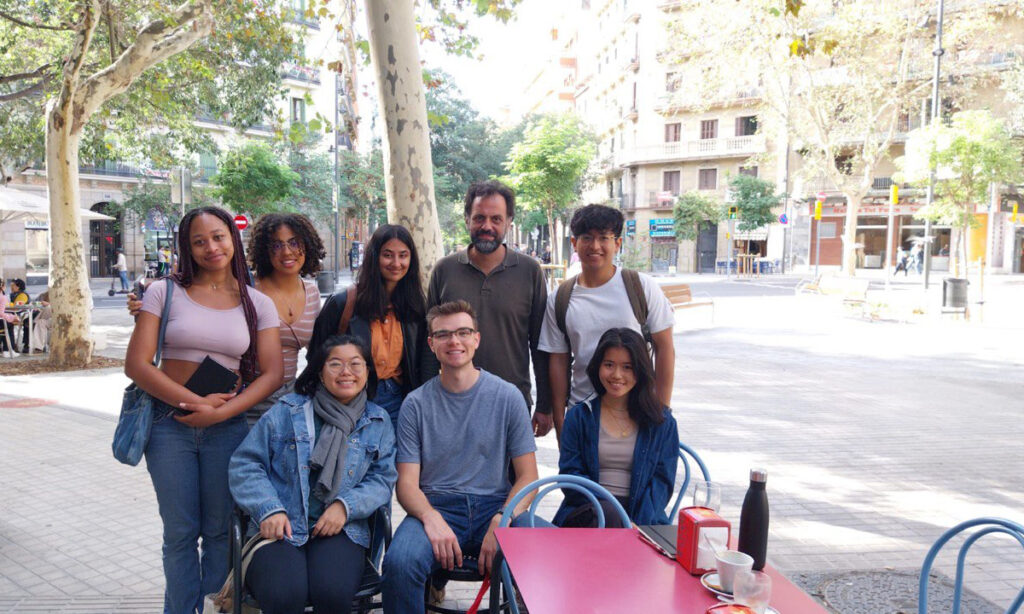 Sophia (front row, left) and her peers conducting an interview with Tonet Font, a Spanish architect and former Deputy Mayor advisor in charge of Social Innovation, in Barcelona. Image provided by Sophia Chok.
Sophia (front row, left) and her peers conducting an interview with Tonet Font, a Spanish architect and former Deputy Mayor advisor in charge of Social Innovation, in Barcelona. Image provided by Sophia Chok.
One of the students was Sophia Chok (Class of 2025), an Urban Studies major who participated in the School of International Training (SIT)- International Honors Program (IHP): Cities in the 21st Century Program, which allowed her to study abroad in Argentina, South Africa, Spain, and the United States. The programme focuses on urban studies and how different factors can affect the development of cities. As the programme allows students to explore different cities, students can compare and learn about the different spaces and factors that affect urban social relations and institutions.
Through the programme, Sophia experienced living and studying in four countries during the span of a semester. She shared, “Yale-NUS has brought me to places around the world with texts and discussions, but through this programme, I could see the direct relationship between my in-classroom discussions and readings, as they interacted with the dynamics I could feel, see, and live in during my time abroad.”
Sophia also had the opportunity to visit key institutions and met with elected officials, who play important roles in the development of cities. Aside from this, students attended lectures, conducted field-based observations, and went on guided excursions.
During her time in the programme, Sophia conducted comparative research focusing on housing inequality, while working on her research under the supervision of travelling faculty and in collaboration with other students. Sophia felt that the experience further cemented her desire to pursue graduate studies and a possible career in academia.
Besides the academic aspect of the programme, Sophia lived with host families in these countries, which allowed her to learn more about their culture and ways of life. Sophia shared, “Adapting to cultural norms and keeping in touch with those close to me while constantly shifting time zones were lessons that would stay with me.”
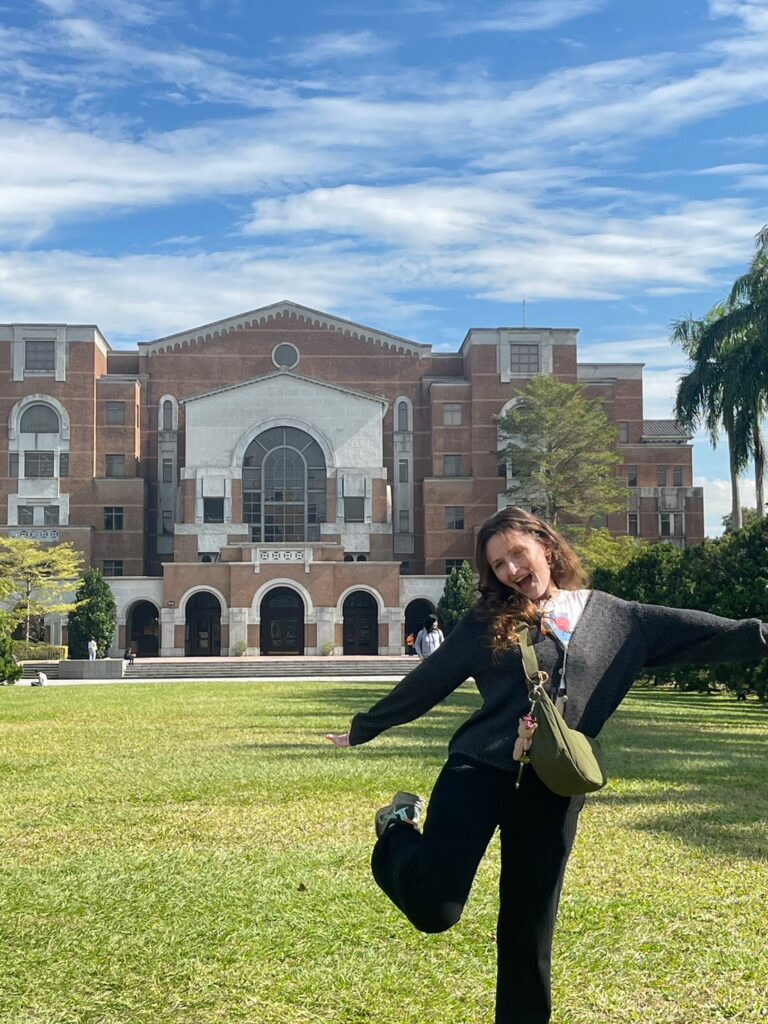 Rebekah posing in front of National Taiwan University. Image provided by Rebekah Nix.
Rebekah posing in front of National Taiwan University. Image provided by Rebekah Nix.
Another student who studied abroad last semester was Rebekah Nix (Class of 2025), who attended National Taiwan University (NTU) in Taipei, Taiwan.
One of the main differences that Rebekah experienced between NTU and Yale-NUS was the main language used for communication. Rebekah commented that while Yale-NUS has a very diverse student body, the texts and discussions are predominantly in English. However, as the majority of the students at NTU do not speak English or are not native English speakers, [she] was more exposed to other languages (besides English) at NTU. “Although my Mandarin is very poor, I felt comfortable practising with classmates,” said Rebekah.
To further expose herself to other languages, Rebekah participated in a weekly two-hour language table held at her dormitory and made new friends while speaking Japanese and Chinese. Rebekah said, “It was a great chance to meet new people, and before I knew it, I was meeting outside of school with my Taiwanese friends to explore Taipei and chat about life, while still bumping into linguistic challenges with each other’s languages. These friends were a blessing to have during exchange, showing me a different side to life in Taiwan and offering a pleasant space for learning.”
At NTU, Rebekah, an Environmental Studies major, studied under the Department of Horticulture and Landscape Architecture and mostly took Environmental Studies classes, such as Forest Climate and Practice, a course which focused on the microclimatology of forests and the physics behind its components. While she was initially nervous about how mathematics-heavy the course was, she was inspired by the passion of Professor Taro Nakai, who taught the course, and immersed herself in the application of forest sciences. She noted that the course “was something that I probably would never have been able to study at Yale-NUS or NUS. The NTU Experimental Forest is an entire forest in Taiwan dedicated to research under NTU and facilitates a sizable community of forest-loving academics.”
While a semester abroad comes with numerous opportunities, students also have to adapt to a new environment. Initially, Rebekah was worried about finding a suitable community at NTU. However, she was eventually able to find a supportive community, growing her confidence in her abilities to “succeed in unfamiliar environments and make the most of [her] circumstances”.
Summing up her study abroad experience, Rebekah said, “The opportunity to explore another country, culture, and language during my studies has revealed resiliency in my character that I am now encouraged to use more of in the future!”

